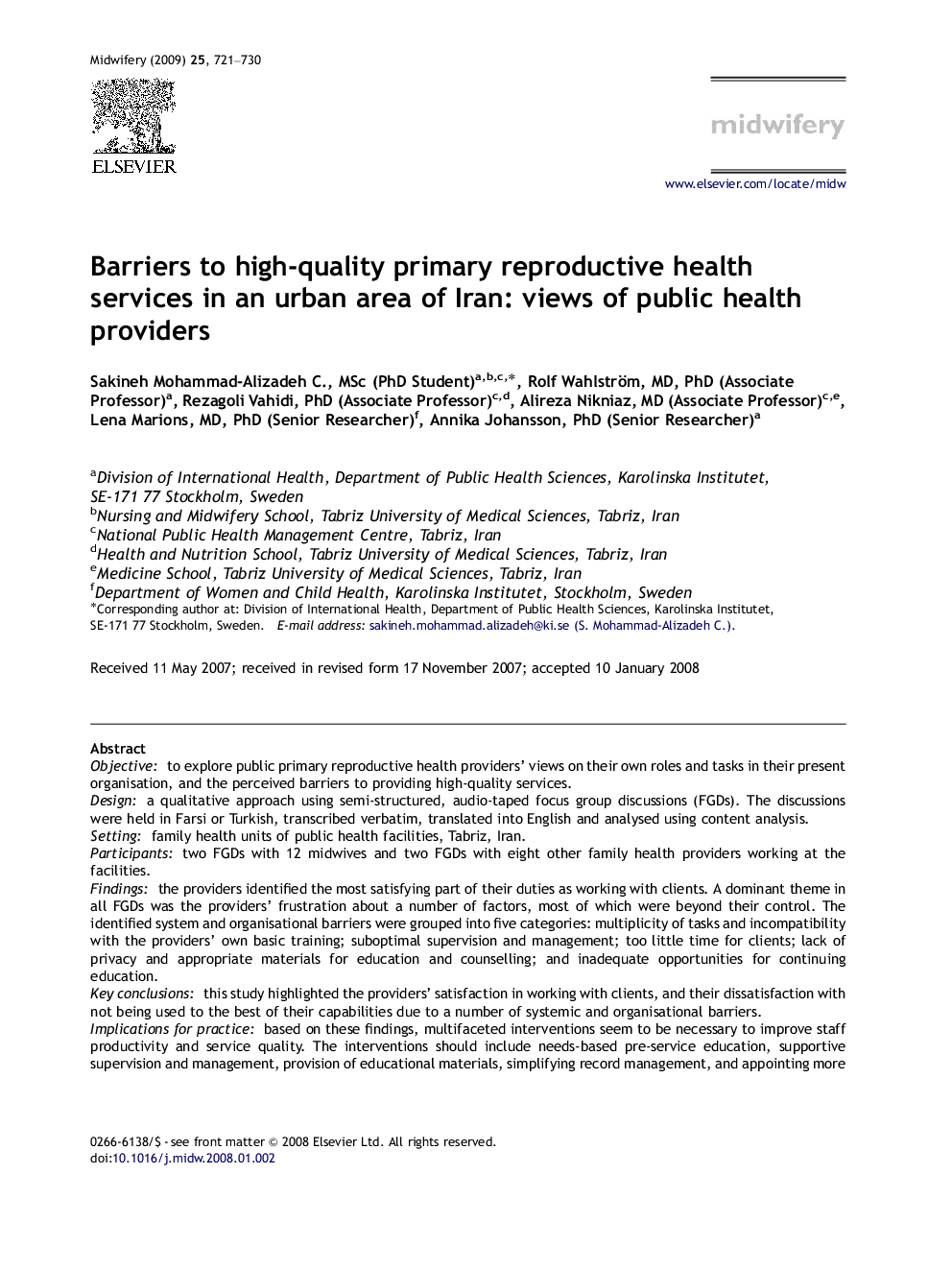| کد مقاله | کد نشریه | سال انتشار | مقاله انگلیسی | نسخه تمام متن |
|---|---|---|---|---|
| 1085500 | 951362 | 2009 | 10 صفحه PDF | دانلود رایگان |

Objectiveto explore public primary reproductive health providers’ views on their own roles and tasks in their present organisation, and the perceived barriers to providing high-quality services.Designa qualitative approach using semi-structured, audio-taped focus group discussions (FGDs). The discussions were held in Farsi or Turkish, transcribed verbatim, translated into English and analysed using content analysis.Settingfamily health units of public health facilities, Tabriz, Iran.Participantstwo FGDs with 12 midwives and two FGDs with eight other family health providers working at the facilities.Findingsthe providers identified the most satisfying part of their duties as working with clients. A dominant theme in all FGDs was the providers’ frustration about a number of factors, most of which were beyond their control. The identified system and organisational barriers were grouped into five categories: multiplicity of tasks and incompatibility with the providers’ own basic training; suboptimal supervision and management; too little time for clients; lack of privacy and appropriate materials for education and counselling; and inadequate opportunities for continuing education.Key conclusionsthis study highlighted the providers’ satisfaction in working with clients, and their dissatisfaction with not being used to the best of their capabilities due to a number of systemic and organisational barriers.Implications for practicebased on these findings, multifaceted interventions seem to be necessary to improve staff productivity and service quality. The interventions should include needs-based pre-service education, supportive supervision and management, provision of educational materials, simplifying record management, and appointing more staff in socio-economically deprived areas. Research is needed to identify the best way to integrate the services, as well as basic and continuing educational needs of staff.
Journal: Midwifery - Volume 25, Issue 6, December 2009, Pages 721–730